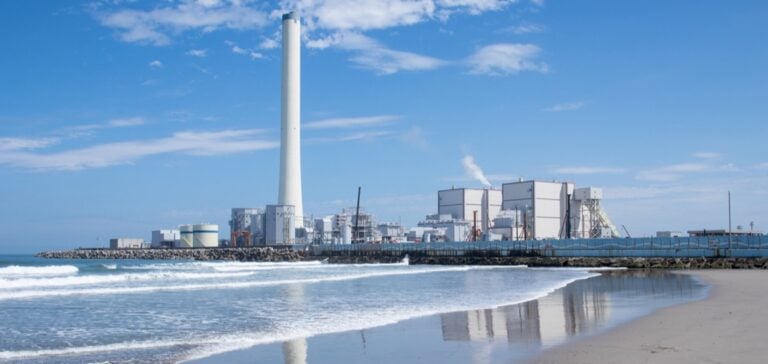Japan is facing a surge in demand for electricity due to unusually high temperatures.
To avoid power cuts in the Kansai region, the Organization for Cross-Regional Coordination of Transmission Operators (OCCTO), the body in charge of managing electricity flows across the country, has taken emergency measures.
On September 12, OCCTO asked Kansai Transmission and Distribution, which manages the region’s power grid, to receive up to an additional 420 MW of electricity from Chubu Electric Power Grid, another power grid management company.
The power transfer took place between 5:30 and 6:30 pm, a period of high consumption.
These measures are designed to ensure a stable power supply and avoid blackouts in a region where demand is booming, particularly in the evenings when solar power is no longer available and air conditioner use peaks.
Earlier in the day, a similar request was made to TEPCO Power Grid, responsible for the Tokyo grid, to import 500 MW from Chubu Electric Power Grid, between 4.30 and 5 pm.
Why are these adjustments necessary?
High temperatures, combined with high energy consumption by businesses and consumers, are creating significant pressure on Japan’s power grid. To meet this growing demand, JERA, the country’s main electricity supplier, has increased production at several of its thermal power plants, even exceeding their normal capacity.
This allows more electricity to be supplied to grids such as TEPCO Power Grid, helping to keep supplies stable.
These production adjustments, known as “oversupply”, have become essential to avoid large-scale power cuts.
The situation shows how crucial it is for power grid operators to react quickly and adapt to changing weather conditions and unforeseen energy needs.
Electricity reserves under pressure
Despite these adjustments, Japan remains under stress.
The power reserve level in the Tokyo area was just 2.23% at 5 p.m. on September 12, well below the recommended safety level of 3%.
The Kansai region was no better off, with a ratio of 2.57% at 6pm.
These figures illustrate the fragility of electricity supply when demand rises suddenly.
This situation underlines the need for efficient management of energy flows and coordination between the various regional operators.
Under normal circumstances, Japan’s power grid is designed to be flexible, but extreme conditions require rapid adjustments.
Optimizing production and preparing for the future
To boost production and avoid shortages, JERA also restarted a 600 MW unit at the Hirono thermal power plant in Fukushima prefecture on September 12.
This unit had been shut down at the end of August due to a technical problem.
Restarting this unit is an essential step in improving available production capacity and meeting unpredictable demand.
These measures show that Japan is ready to quickly adjust its production and mobilize its resources to ensure a stable electricity supply, even in the face of unforeseen conditions.
The flexibility and speed of reaction of grid operators remain crucial to guaranteeing a stable energy supply.






















